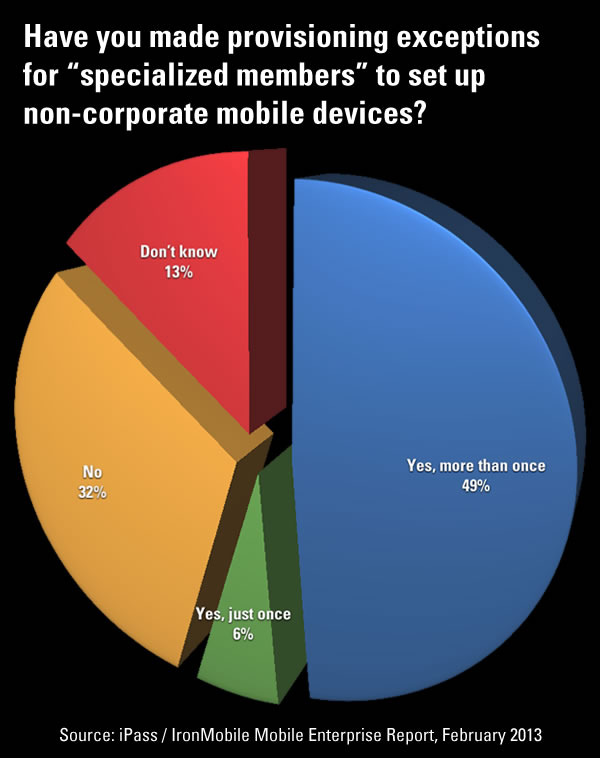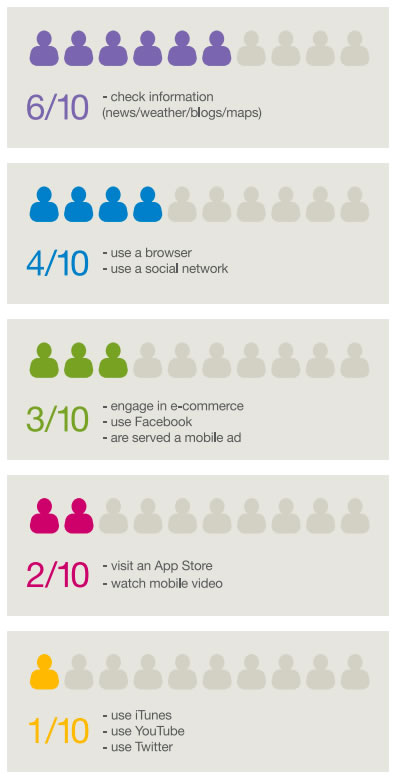If you’d like a steady stream of tips on how to run your enterprise from a guy who most certainly knows how to run his, check out the Picard Tips Twitter account!

An actual scene from the Samsung Galaxy S4 preview.
After watching last night’s preview of the Samsung Galaxy S4, my first thought was “Well, that was weird”. Held in New York’s legendary Radio City Music Hall, they couldn’t resist going Broadway with really corny and overacted skits in which the features of their upcoming flagship phone were demonstrated. It had everything you’d expect from a matinee performance of Guys and Dolls that you’d expect from a touring company performing at a community theatre in some small midwestern town: orchestral segues built on a recurring leitmotif (in this case, the “Samsong” — the familiar tune that Samsung uses as its default ring), an annoying child actor, hammy over-emoted performances from everyone onstage, jokes bad enough to make you groan out load (including a number of just-sexist-enough ones) and believe or not, an actual tap-dancing number.

The entire thing was overseen by Broadway actor Will Chase, who seemed to be doing his level best to channel the spirit of actor-turned-“I’ll promote anything”-pitchman Troy McClure from The Simpsons, right down to the I-can’t-tell-if-he’s-being-ironic-or-not delivery.
If you missed the presentation or for some masochistic reason, want to go through it all over again, Samsung have seen fit to share all fifty-odd cheese-tastic minutes of it on YouTube:
All it needed for it to be completely over-the-top surreal would be appearances by Big Bird and Bishop Desmond Tutu. Too bad Qualcomm already had that idea:
If you’re a Canadian entrepreneur looking for some money to get your business idea off the ground, you should check out BDC, the Business Development Bank of Canada. They’re a bank owned by the Canadian government charged with the task of helping Canadian entrepreneurs get the funding and advice they need to be successful. I’ve had the pleasure of getting their financial assistance for my company, CTS, and they’ve been very helpful — in fact, a delight to work with. I cannot recommend their services highly enough.

Francois Viau and Bradley Munro,
two of the presenters.
Yesterday, the BDC held a short seminar and lunch featuring a talk on innovation at their downtown Toronto office at the corner of York and King Streets. I’ve had my head down in work and wasn’t really looking forward to attending it; I’ve sat through all sorts of presentations like this and have often come out saying “Well, there’s a couple of hours of my life that I won’t get back.” I was pleasantly surprised with this one: this had some interesting, engaging presenters, and I found myself taking copious notes on my iPad as they talked. All right, BDC, you’ve really won me over now (and hey, thanks for the business loan).
My notes from the presentation are below. Enjoy!
Innovation (presented by Bradley Munro)
Intro
- The 2 key problems that small businesses face:
- Lack of money to work on innovation
- Lack of people to come up with solutions
- Peter Drucker: “Because its purpose is to create a customer, the business enterprise has two — and only two — basic functions: marketing and innovation”
- Marketing: creating profitable relationships with customers
- Innovation: a demonstration to your customers that you’re trying to solve problems
- Innovation means growth, and growth means survival
- There are 1.2 million small business in Canada, and they account for 1/3 of the GDP
- That means that there’s lots of competition — innovation differentiates you!
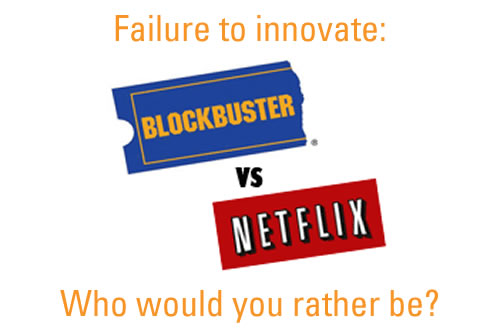
What is Innovation?
- It’s the constant pursuit of strategic change, and a commitment to evolving your business model
- It’s about surprising and delighting your customers, getting better at what you do and helping customers solver their problems
- It’s a process that is disciplined and systematic
- It’s embraced at all levels, starting at the top
- It’s the responsibility of everyone in the organization – from the mail room up
- How to you capture your employees’ ideas, filter them and synthesize them?
- Consistency is key
- The process is customer-oriented, so it must involve customers
Big Innovation or Small?
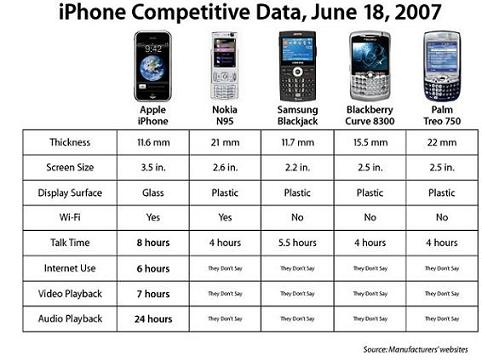
The often-cited big, disruptive innovation.
- Most people think of big, disruptive innovation
- A favourite example of this sort of innovation is Apple, and how they disrupted the RIM, Nokia and Motorola
- This type of innovation is incredibly rare, the exception rather than the rule
- Most innovation is small, incremental
- Think about innovation as your retirement portfolio – you wouldn’t bet your retirement fund on a single oil and gas stock
- For SMEs, big, disruptive innovation should be the furthest from your mind
- A good example of small, incremental innovation: Tim Hortons
- Strange to think of the evolution of a coffee and donut shop as innovation, but it is!
-
They managed to stay on top and give us a reason to think of it as a destination for daytime meals
- Constant delivery of new products and services
- Stock has climbed steadily since 2009 and performing better than S&P 500
- Innovation is a demonstration of why the company cares about the customer and why the customer should think of the company as a service provider
- If you’re wondering if you should innovate, ask yourself: “Is my business growing?”
Innovation vs Product Development
- The difference is risk and your appetite for it:
- Small companies tend to be risk takers
- Medium-sized companies tend to be risk managers
- Large companies tend to be risk avoiders
- Small companies have the appetite for risk, but not the money nor the people
| Innovation | Product Development |
|---|---|
| High risk | Moderate/low risk |
| Uses new technology / capabilities | Uses existing capabilities |
| Lower success rate | Higher success rate |
| Idea | Commercialization |
| Game-changing | Incremental |
| Creative and collaborative | Process-oriented |
| Corporate | Functional |
| More with less | More with the same |

Microsoft is particularly guilty of this.
- The term gets misused a lot
- Most of what is called “innovation” is really product enhancement
Minimizing innovation risk
- Take a portfolio approach: diversify your investment
- Don’t bet the farm on one idea or a large project unless you have the resources to absorb failure
- Use a mix of small, medium and large projects
- Be strategic: do the ideas you’re considering fit the vision and long-term objectives for the company?
- Be disciplined in how you allocate resources – choose your battles carefully
- Have clearly-defined objectives: “I want x% of my revenue coming from these projects by this date”
- We all work better knowing what the expected outcome is
- Some companies are great at ideas but have no idea how to filter or execute them
- Some have great execution, but lack the imagination to come up with new ideas
- Take advantage of existing tax credit programs, such as SR&ED
- Lots of government programs to help offset the cost of developing new products
- Requires paperwork and effort, but the payoff is handsome
Four Key Factors in Innovation
- Strategy
- Take a portfolio approach – separate small from medium from big, and prioritize – low/medium/high risk, low/medium/high opportunity
- As owner/operators, set the tone with clear vision and objectives
- Set parameters for innovation ideation process (customers play a valuable role in this process)
- Establish performance criteria for new ideas
- Expect failure and support it – manage the process so that the ones that fail aren’t the news you went out n a limb for
- Take action: nothing kills innovation like being all talk but no action
- Demonstrate to others in the company that you’re listening and taking action on employee ideas
- Write off your R&D expenditures
- Structure
- More for medium size companies with more resources
- You don’t want to isolate your innovation efforts and keep people collaborating
- Use integrated teams and promote collaboration
- Successful companies ease back on the reins and lets people collaborate, giving people latitude to explore ideas
- Nothing drives lethargy in a company like doing nothing new for a long time
- Companies that don’t spend time on innovation end up spending their time on administration
- Be open to systematically testing and learning – you can do this incrementally
- Hold regular brainstorming sessions – once a month is fine
- Document what you’re doing – formally recapture innovation and R&D activities
- Skills
- Strong leadership: good communicator, relationship builder, broad business perspective
- Takes a team approach
- Look for partners to collaborate with and build new products and services
- Look for different perspectives
- Innovation requires good project management skills: you’re working from a blank slate
- Small businesses shy away from process, but it’s needed to go from small to medium and medium to large
- Process
- To be good at innovation, you need to be good at three things:
- Coming up with ideas
- Filtering them
- Developing them
- To be good at innovation, you need to be good at three things:
Innovation killers
- Setting the bar too high, especially with financial hurdles
- DCF/ROI/NPV criteria are ways to set yourself up for failure
- Unreasonable assumptions, unrealistic projections
- Home run syndrome – think of it as starting a little garden
- Not having discipline around project management
- Don’t let the innovation project fall by the wayside because everyone’s too busy
- Not taking action, even on small ideas
- Over-reliance on industry wisdom and “knows” – keeps you in the box
Summary
- Successful innovation is a disciplined process
- Best place to start for small companies is to inject some process around innovation
- Set reasonable, achievable
- Focus on customer, don’t sweat profits: they’ll come
- Smart small, test and learn
- If you have the benefit of resources, manage the risk with a portfolio approach
- Expect failure
- Maximize available tax credits
Q&A
- Q: How do you take a company from entrepreneurial to process-oriented?
- The best way to think about it is documentation
- Start with a proposal or product definition document
- Document critical stages of moving customer from in the door to out the door
- All projects should have documentation that has been written, reviewed and approved
- Documentation is the essence and underpinning of the innovation process
- Process is documentation!
- As you evolve the business and complexity and risk increase, you need more process
- Process is discipline
- Process is risk management
- Documentation is also necessary for tax credits
- Q: Relying on customers can sometimes limit innovation. What can I do about it?
- Customers play a fundamental role in the early stage
- Don’t want them “in your kitchen” as you develop and enhance your product, but you still want them as checkpoints
- Anything process-oriented is eligible for SR&ED
SR&ED, Innovation and R&D (presented by Rowda Mohamud)
- Innovation: transform new ideas into high potential ROI
- To innovate you may need to conduct R&D
- R&D happens in places you don’t expect: it even happens in bakeries
- Vast majority of R&D is being done in SMEs
- Half of Canada’s full-time R&D people are in Ontario
- R&D is an investigative process that improves upon industry standard practice leading to:
- Development of a new product or process
- Improvement of an existing product or process
- Challenging the knows, the folk tales
- Successful innovation requires formal project management of R&D
- Leads to greater confidence when undertaking riskier projects
- The processes you adopt effectively transform company culture so innovation becomes embedded
- Throw out the idea of trial and error and go with research and development
- Trail and error is random, haphazard
- Processes lead to confidence
- SR&ED gives $3 to $4 billion annually to R&D and is a model for the world — other countries emulate it
- 40% goes to small companies
- Its purpose: to help Canadian entrepreneurs take on technologically challenging projects
- The structure and execution of R&D projects will determine the amount of investment tax credits
- Effective management of innovation-driven R&D projects requires
- Defining technological objectives and key success criteria
- Proper planning of investigative and experimental activities
- Clear identification, allocation and tracking of R&D resources
- Creating a systematic documentation process that is ongoing
- Software companies lag in claiming SR&ED; they’re doing R&D without even knowing it
- People don’t do their basic due diligence
- SR&ED projects have to be on a gap with your industry
- You don’t have to patent
- Encourage your employees to be truthful – there are no bad ideas
- CRA says that SMEs are weak at tracking their time
- Language for SR&ED is enshrined in the income tax act, but CRA is free to interpret
BDC (presented by Francois Viau)
- The BDC’s mandate to be profitable — it’s not blowing taxpayer money
- Currently, it has 2000 employees, 28000 customers and has 16 billion in loans
- Complementary to other banks
- Why would the government set up a bank?
- Unlike commercial banks, BDC works primarily for the entrepreneur
- They don’t reproduce what other banks do
- BDC would finance an innovation project; most banks would balk
- We’d like to show you 2 new BDC product ideas
- These products focus more on reach rather than revenue and bottom line
- They’re consulting products that are far cheaper than the typical consulting fee of $10 to $30k
- New product 1: Customized innovation workshop
- One-day session on your premises
- Purpose is to engage key members of your organization to stimulate strategic thinking to generate new, actionable ideas
- Understand how to manage an effective innovation process
- Facilitated by Bradley Munro
- Cost: $1000
- Outcome will include:
- Short list of new products or service ideas
- Apply creative thinking to business and tech issues
- Be better positioned for future growth
- New product 2: Customized SR&ED planning workshop
- Full-day session on your premises
- Purpose is to train key personnel how to identify, track and capture SR&ED activities to maximize investment tax credits
- Facilitated by Rowda Mohamud
- Cost: $1000
- Outcome will include:
- You’ll learn how to mitigate financial risk of innovation by structuring future development to take avatange of investment tax credits
- You’ll learn how to apply project management strategies to track SR&ED activity concurrent with innovation efforts

What is Shadow IT?
“The street finds its own uses for things” is a line from William Gibson’s cyberpunk short story Burning Chrome, and it’s often used to explain the uses of technology that are unexpected, unintended, and oftentimes unsanctioned. In Burning Chrome, the “street” was the criminal and hustler class in Gibson’s Blade Runner-esque “Sprawl” universe. An article in today’s New York Times suggests that in real life, it’s your coworkers.
Shadow IT sounds like some kind of future slang that Gibson would’ve coined, but it’s an office term referring to the set of applications and systems that are used in organizations without that organization’s approval, and especially without the approval of the IT department. It’s usually the result of one or a handful of employees discovering an application, service or system that solves a problem in a way that seems more effective, expedient, and more free of red tape than if it were solved by IT. Shadow IT usually starts off as an ad hoc solution, but if it becomes popular within an organization, its use can become standard practice, even without the approval or oversight of the IT department.
Among the applications and services that fall into the category of shadow IT are:
- Wifi: In offices that don’t provide wifi but provide broadband access through ethernet, people bring and plug in their own wifi routers.
- “Sneakernet”: Carrying a USB key is still the simplest, highest-bandwidth way to pass files within an office. In offices where the email server has a policy of not allowing email attachments over a specific size, sneakernet can be quite useful.
- Email forwarding: A common trick to bypass security measures in enterprise email systems is to forward emails from a company account to a personal account for later reading.
- File-sharing/-storage services: In situations where sneakernet won’t do, such as sharing files among people in different offices, or with remote coworkers, or to have “anytime, anywhere” access to specific files, services such as Box, Dropbox, Google Drive, SkyDrive, and YouSendIt are often used.
- Collaboration services: When people work collaboratively on documents, passing around files often leads to those files going out of sync and the rise of different versions of the same document being passed around. In such cases, Evernote, Google Apps and the web version of Office are the preferred collaborative tools.
- SYOD devices: SYOD is short for “smuggle your own device”, our shorthand for when people bring their own devices without IT’s knowledge or approval.
- Text, voice and video chat: Popular “out-of-band” communications tools include Facebook, Google Chat and Skype.
Many organizations even have a shadow IT budget to cover the costs of these services. In a 2012 survey of IT managers by PriceWaterhouseCoopers, nearly half the respondents said that at least half of their corporate IT spending was on shadow IT.
Upsides and Downsides
Shadow IT is a mixed blessing for organizations. It solves a lot of problems for business workers, and relieves IT of some of their load, as they’re services that they don’t have to install, maintain or support. It also blurs the line between work and home life — what some call “life splicing” — which companies like, because it often works in their favour, getting extra work out of their employees.
One downside is that they may put the organization in violation of certain compliance guidelines, such as HIPAA or Sarbanes-Oxley.
They also increase the number of ways that organizations can lose control of their data through attacks on the servers on which the services reside. Examples include:
- The 2011 Chinese attempts break into the Gmail accounts of several U.S. government officials. Investigators believe that the people who broke into the Gmail accounts were hoping to find messages forwarded from the (presumably) more secure government email system to personal email accounts.
- The attack on Mat Honan, which made use of the strange overlaps in security measures of various online services.
- Break-ins on popular sharing and collaboration services such as Dropbox last July, or on Evernote this weekend.
Mobile devices further complicate things. They’re easy to carry, but that means that they’re also easy to lose. One notable case brought up in the New York Times article is the recent loss of a mobile device assigned to an employee of Florida’s Department of Juvenile Justice. It was neither encrypted nor locked with a passcode, making the records of up to 100,000 youth and department employees accessible.
No Easy Solution
The seemingly obvious solution is simply to ban the use of non-sanctioned services. However, policy along is insufficient; Florida’s Department of Juvenile Justice had a policy specifically forbidding the storage of sensitive data on unsecured, unencrypted devices, for all the good it did them.
Solutions such as the DNS control provided by BlueCat Networks can limit access to such services. By taking control of an enterprise network’s DNS, you can restrict access to specific sites and services and lock out unauthorized devices. This protection is available as long as you’re using the enterprise network to access the internet; outside, you’re not covered.
Educating employees of the risks of such services can help, but there are always some employees you’ll never be able to reach, no matter how many sessions they attend.
People resort to shadow IT because no acceptable solutions exist within the organization. The most effective solution may be to implement a system that meets employees’ needs at least as well as outside services. This, of course, is easier said than done.

Create a Mobility Policy, Educate Your Employees About It, and Get Them to Sign Off On It
“Whatever your BYOD policy is,” goes the second of four tips in the PC World article When alien hardware invades: 4 keys to BYOD success. “you should define it in a written document.” It’s an important point, and one with which we agree. At my company, CTS, we recommend that you…
Create a mobility policy.
This is a written set of rules governing the use of mobile devices for work, whether the devices are owned by your organization or by your employees, and covers company-liable, COPE, BYOD and everything in between. Note that this is something you can’t do in isolation, but in consultation with your employees: not just the IT department, but also management, various business units, HR, legal and so on. You should also consider the various levels of mobility in your company: the needs of “road warriors”, who spend most of their time on the road, vs. your office core, who spend most of their time at the office (but can easily spend half their time away from their desks at meetings) differ greatly, but they both need to be accounted for. CTS has a Mobility Policy Guidebook to help you figure out what should go into your organization’s mobility policy.
Once you’ve created a mobility policy, educate your employees.
Mobility policies can sometimes be lengthy documents, and it’s all too likely that people will simply glance at at, say “I’ll read this later” and file it away in that Place Where Things Are Never Heard From Again. This is bad, especially considering that mobile technology is a new, rapidly-changing thing, and BYOD is also a new, rapidly-changing thing; it’s likely that many of your employees’ assumptions about mobile devices at work are wrong (consider the case of Amanda Stanton, whose employers remote-wiped her iPhone). Hold info sessions to explain the broad strokes of your mobility policy, and more importantly, the rationale behind the rules in the policy. CTS’ Mobility Policy Guidebook not only helps you set up the rules in your mobility policy; it also explains the rationale behind them.
Have your employees sign mobility agreements.
 These agreements, typically handled by HR, specify the terms and conditions by which employees agree to abide. Some organizations use a single agreement, while others break them up into documents such as:
These agreements, typically handled by HR, specify the terms and conditions by which employees agree to abide. Some organizations use a single agreement, while others break them up into documents such as:
- a Mobile Acceptable Use Policy agreement,
- a Mobile Remote Wipe Policy agreement,
- and in the case where the organization helps cover part or all of an employee’s mobile bills, a Mobile Reimbursement Policy agreement.
Once again, CTS’ Mobility Policy Guidebook covers these.
Want to know more about CTS’ Mobility Policy Guidebook? Contact us at sales@ctstech.net!
Samsung Knox
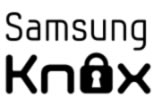 Samsung’s courtship of the enterprise market continues with the announcement of Knox, their containerization solution that lets you split your phone into two different sides: one for work, and one for the rest of your life. Each side is under a completely different “jurisdiction”, with your company’s IT department having control of the work side, while you have full control over the “rest of your life” side, free to install whatever apps you want.
Samsung’s courtship of the enterprise market continues with the announcement of Knox, their containerization solution that lets you split your phone into two different sides: one for work, and one for the rest of your life. Each side is under a completely different “jurisdiction”, with your company’s IT department having control of the work side, while you have full control over the “rest of your life” side, free to install whatever apps you want.
Here’s an excerpt from an article on Knox written by a Samsung partner, Centrify:
…even in the case that the device itself has no unlock passcode and no corresponding security policies, the secure container of business apps on the phone cannot be accessed unless the appropriate passcode is entered. And inside the container the user is able to share data between business apps (e.g. copy and paste text from an email into a CRM record), but corporate IT would of course not want data inside the container copy-and-pasted onto a non-container app such as Twitter or Facebook — i.e. data leak prevention. And of course corporate IT should have the ability to wipe the container if the device is lost or the employee leaves the organization, but not delete music, photos, personal apps, etc. that the employee put on the phone.
Knox works on any SAFE (SAmsung For Enterprise) -certified devices. Currently, there are only two such devices: the Galaxy S III and the Galaxy Note II.
Ten Ways to make BYOD More Appealing to Users

TechRepublic have ten suggested ways to make BYOD more appealing to those users who are still a little reluctant. The full details are in the article, but we thought we’d list those ten ways in summary:
- Tell them that BYOD means more freedom. BYOD allows users the freedom to do their work anytime, and in any place. This means that they can be productive while on the go, whether they’re on their commute, while waiting to pick up their kids from school, or doing other things that wouldn’t be possible in the age before mobile technology. The TechRepublic article also talks about more time to use social networks, but we feel that the real benefits come from getting stuff done and not being stuck at the office.
- Allow longer work lunches. If employees take their devices to lunch, why not take advantage of those “any time, anywhere” capabilities and let them take longer lunches — which are often used to run mid-day errands — as long as they’re being productive.
- Provide software incentives. “More than likely, your company has access to software titles at lower prices than do your employees. Why not extend these prices to your employees as an added incentive for BYOD?”
- Allow them to take advantage of deals through hardware purchases through the company. “Similar to the software incentive, you probably can allow your employees to purchase the hardware they will use in the BYOD program through your own channels.”
- Give them an end-of-year bonus. “You’ve saved money by having your employees bring in their own devices. There is no reason why you can’t pass on a fraction of those savings to participating BYODers.”
- Offer more telecommuting opportunities. Give BYODers the opportunity to occasionally telecommute.
- Offer cloud storage. “If your company has the resources, offer BYOD employees an internal cloud storage option. This solves a number of problems. It allows your employees easy access to the data they need to work with and enables them to store personal data in a safe cloud environment.”
- Subsidize their phone plans. “For those BYODers using their personal smartphones for business, it makes sense to compensate their phone plan somewhat.” A number of organizations do this as part of their mobility policy, and we expand on this in the CTS Mobility Policy Guidebook.
- Give free (limited) support. A limited amount of support (say assistance getting connected to corporate resources such as email and intranet) is helpful, and keeps them productive.
- Tell them about the security benefits. If you can offer BYODers added security on their devices — say, through an MDM application installed as part of your BYOD program — tell them about those benefits.
“Gabe” from Penny Arcade Give the Surface Pro a Glowing Review
After some pretty rough early reviews, the Surface Pro gets a positive one from a trusted source for the sort of use where Apple products typically dominate. Mike “Gabe” Krahulik, the illustrator of the popular gamer-oriented webcomic Penny Arcade, tweeted that he’d love to try out a Surface Pro for drawing, and Microsoft sent him a 128GB mobel to try out.
Krahulik’s main drawing tool is a Wacom Cintiq 24HD. It’s a wonderful drawing tool that many digital artists swear by, but it’s also a big beast that’ll take up most of the space on a typical work desk and weighs about as much as five 10-pin bowling balls (according to the specs, with its stand, it weighs 64 lbs. / 29 kg) — and that’s not counting the computer. The Surface Pro weighs a mere 2 pounds (check its specs), computer included, and is portable enough for you to work on your webcomic as you sit by the fireplace, which is exactly what Krahulik did.
His opinion (with my emphasis):
As a mobile solution for a digital artist I’d say the Surface Pro is a winner. Now obviously if you need Photoshop you will probably want to wait until they get their driver issues worked out. If you’re a Sketchbook user (or you could be) then this thing is ready to go right now. I had some people on Twitter asking if the Surface Pro makes sense as an alternative to a Cintiq at home or the office. That one is harder for me to answer. I personally really like my Cintiq 24HD and I would not use the Surface pro at the office instead of it. With that said, if I had about a grand to spend and I was looking at a Cintiq, I’d say the Surface Pro is a much better purchase than the12WX Cintiq. The 64gb Surface Pro and the 12” Cintiq are about the same price but with the Surface, not only are you getting a fantastic drawing tablet that you can take with you wherever you go, it’s also a fucking computer! So when you’re done drawing you can load up your Steam library. Which is exactly what I did next.
Since he is a gamer, he also tried out some games on the Surface: League of Legends, Portal 2, XCOM: Enemy Unknown, Civilization 5 for Windows 8 and Minecraft worked just fine; Call of Duty multiplayer kept crashing.
Here’s his verdict (again with my emphasis):
For me the Surface Pro is actually a great piece of hardware. For other digital artists out there looking for a portable solution or maybe a Cintiq 12WX alternative I would highly recommend it. I’m not actually sure how this review hardware stuff works. I don’t know if MS expects me to give this thing back or not. I’ve already decided that if they do want it back I’ll be making a trip down to the MS store to pick up another. Of course if they do want it back they’re going to have to pry it out of my wife’s hands. She just hit her very first golden age.
Hey, Microsoft: you can’t buy advertising like this. And that’s not a generic “you” I’m using, that’s a “you” as in “you, Microsoft Corporation, for whom I used to work.” You’re terrible at making ads, and the best kind of ad just landed in your lap. Let Mike Krahulik keep the Surface Pro.
Ruby 2 p0, Rails 4 Beta 1, and CoffeeScript 1.5 Released
The first stable release of the 2.0 series of the Ruby programming language has been released. Highlighted among its new features are:
- Language core features
- Keyword arguments, which give flexibility to API design
- Module#prepend, which is a new way to extend a class
- A literal %i, which creates an array of symbols easily
- __dir__, which returns the dirname of the file currently being executed
- The UTF-8 default encoding, which make many magic comments omissible
- Built-in libraries
- Enumerable#lazy and Enumerator::Lazy, for (possibly infinite) lazy stream
- Enumerator#size and Range#size, for lazy size evaluation
- #to_h, which is a new convention for conversion to Hash
- Onigmo, which is a new regexp engine (a fork of Oniguruma)
- Asynchronous exception handling API
- Debug support
- DTrace support, which enables run-time diagnosis in production
- TracePoint, which is an improved tracing API
- Performance improvements
- GC optimization by bitmap marking
- Kernel#require optimization which makes Rails startup very fast
- VM optimization such as method dispatch
- Float operation optimization
There’s an important feature in Ruby 2 that isn’t mentioned on their site: it’s the preferred version of Ruby for Rails 4!
The beta 1 release of Ruby on Rails 4 was announced yesterday. As proof that it and Ruby 2 can be used in production software, they point 37signals’ group email service Basecamp Breeze, which is powered by Rails 4 and Ruby 2.
Goodies in Rails 4 include:
- Features to make it “dead simple to build modern web applications that are screaming fast without needing to go the client-side JS/JSON server route”, including:
- Key-based expiration with automatic dependency management of nested templates (for “Russian doll caching”)
- Turbolinks, “which essentially turns your app into a single-page javascript application in terms of speed, but with none of the developmental drawbacks”
- Declarative etags “to ensure you’re taking advantage of HTTP freshness”
- Live streaming for persistent connections
- Improvements to Action Pack, Active Model, Active Record and Active Support
- Security updates:
- Session store is now encrypted by default
- Strong Parameters take over from attr_protected to guard against foreign parameters.
- Security headers like X-Frame-Options, X-XSS-Protection, X-Content-Type-Options are on by default with solid values.
- XML Parameter parsing has been sent to a plugin
- Working with threaded servers out of the box
Ruby’s not the only language that goes well with Rails that got an update. Check out CoffeeScript 1.5!
Here are the major changes in CoffeeScript:
- First release of Literate CoffeeScript.
- The CoffeeScript REPL is now based on the Node.js REPL, and should work better and more familiarly.
- Returning explicit values from constructors is now forbidden. If you want to return an arbitrary value, use a function, not a constructor.
- You can now loop over an array backwards, without having to manually deal with the indexes: for item in list by -1
- Source locations are now preserved in the CoffeeScript AST, although source maps are not yet being emitted.
The Best Programmers are the Quickest to Google
iPass and MobileIron’s 2013 Mobile Enterprise Report
Over at my company, CTS, we’re taking a close look at the numbers reported in the Mobile Enterprise Report put out jointly by iPass and MobileIron. Based on a survey of IT pros at the director level or higher (50% of whom worked for companies with more than 1,000 employees) conducted from December 2012 and January 2013, it reflects what we’ve been seeing in the enterprise.
If you talk to enough IT pros and sysadmins, you’ll eventually notice the same story being told again and again: there’s a lot of rule-bending when it comes to the Big Kahunas at a company. Of the people surveyed, nearly have said that they’ve made exceptions to the rules for provisioning mobile devices to “specialized members” of the company. By “specialized”, they probably mean “people with the power to fire me, or at least make my work life very, very miserable”.
Some other notable stats and observations from the report:
- BYOD is catching on:
- 56% of respondents say they changed their corporate guidelines in the past year to be more accommodating of employees’ personal devices.
- 81% accommodate personal devices in the office.
- 54% have formal BYOD policies, and more organizations allow BYOD than have policies for it.
- Phone preferences:
- The iPhone surpassed BlackBerry devices as the most popular in terms of corporate IT support.
- Windows Phone 8 gaining favour of BlackBerry 10? 45% of IT managers surveyed plan to support Windows Phone 8 devices; 34% plan to support BlackBerry 10.
- Tablet usage is up in all non-executive departments, especially legal, HR/administration and finance/accounting.
- The iPad is the top choice of tablets, with support from 73% of the companies surveyed.
- Also noteworthy:
- 55% of the companies surveyed had mobile device security issues last year, mostly having to do with lost or stolen phones.
- 55% of IT managers use wifi connectivity apps for productivity purposes. Wifi apps were the most widely-used out of 10 different types of enterprise mobile apps. The second most widely-used: secure email.
We’ll take another look at this report in a later article. In the meantime, if you’d like to read it for yourself, you can download it from this page. (It’s free; you’ll just have to provide some contact info.)
Citrix’s Mobile Usage Survey: We’re Really Attached to Our Mobile Devices
 A survey commissioned by Citrix and conducted by Wakefield Research shows the level to which people are attached to their smartphones. Among the numbers gathered from over 1,000 adult Americans in January 2013 were:
A survey commissioned by Citrix and conducted by Wakefield Research shows the level to which people are attached to their smartphones. Among the numbers gathered from over 1,000 adult Americans in January 2013 were:
- Mobile devices as mealtime reading material: 69% of the mobile device owners surveyed said that it had been a day or less since they last ate a meal without checking their mobile device. It may seem like a phenomenon particular to Gen Y, but with 66% of them agreeing with that statement, they’re behind Gen X (68% said that this was true) and the Baby Boomers (71%).
- Mobile devices as blackmail material: Among the mobile device owners in the survey who recorded an embarrassing video of someone in 2012, 52% are saving it to share with others in 2013. That’s a bit creepy.
- Mobile devices as gauges of patience: 30% of survey respondents said that they wouldn’t wait longer than 8 seconds for a page to load, after which they’ll move onto something else. 72% of respondents said that slow downloaded would cause them to abandon downloading a large file.
- Mobile devices as communication devices? Maybe not: 64% of the people surveyed said that the primary reason they used a mobile device was “to keep myself from being bored”. Half that number — 32% — said that the primary reason was “to bring friends or family together”.
For more, see Citrix’s news release, titled Survey Shows Americans Treat Mobile Devices as Best Friends.
Citrix Bytemobile’s Feb. 2013 Mobile Analytics Report: What Mobile Traffic Data Tells Us
Bytemobile — now called Citrix Bytemobile since they were acquired — recently released a mobile analytics report that looked into mobile subscriber behaviour and QoE (Quality of Experience) for mobile services. Based on data traffic from “a global cross-section of Citrix Bytemobile customers’ mobile networks”, it contains a number of findings, including:
- On any given day, out of every 10 smartphone subscribers:
- 6 will look up information: news, weather, maps, blogs
- 4 will open a web browser
- 4 will use a social network app
- 3 will use Facebook
- 3 will engage in ecommerce
- 3 will be be served a mobile ad
- 2 will visit the App Store
- 2 will watch mobile video content
- 1 will use iTunes
- 1 will use YouTube
- 1 will use Twitter
- Data usage:
- Approximately 50% of mobile web pages download in 8 seconds or less across wireless networks worldwide. Remember that 30% of the respondents from the Citrix survey mentioned above said that they wouldn’t wait longer than 8 seconds for a page to download before moving on to something else.
- Tablets generate more data than smartphones; iPads, triply so. On average, a network-connected tablet generates 3 times more data than a smartphone, and iOS tablets generate more than 3 times the data of Android ones.
- Video accounts for more than 50% of total mobile data traffic on wireless networks, even though only 20% of mobile subscribers watch video on their devices. Mobile video watchers watch an average of 2 minutes of video at a time, which is double that of the Bytemobile Mobile Analytics Report from February 2010.
For more, get Citrix Bytemobile’s February 2013 Mobile Analytics Report (free registration required).









